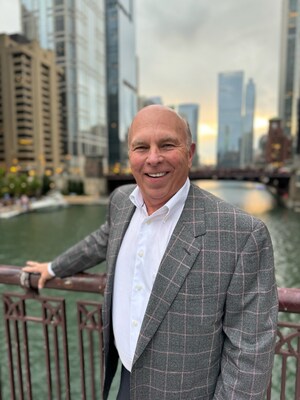CHICAGO, Aug. 20, 2019 /PRNewswire/ -- When Specialdocs Consultants was founded in 2002, terms like 'burnout' and 'no work-life balance' were not yet synonymous with medicine, but the downward spiral for physicians in traditional fee-for-service practices was clearly accelerating. For women, who were entering the profession in record numbers, it was even more daunting, faced with pay inequities exacerbated by the convergence of their prime earning and childbearing years. While initially, male physicians sought the autonomy, financial stability and opportunity to enjoy career and family offered by the company's model of concierge medicine, CEO Terry Bauer reports that women physicians now comprise more than a third of Specialdocs' clients.
"We've seen firsthand why concierge medicine is deeply rewarding for women physicians, uniquely suited to overcome challenges and realize their vision," says Bauer. "Our female Specialdocs clients have expressed genuine joy with their choice."
"What we get as concierge physicians is control of our work environment, patients' experience, ability to earn a living, and the way we take care of our families." Dr. Dorothy Serna, TX
"It's brought back all the reasons I went into medicine in the first place." Dr. Carrie Cardenas, CA
"I have two young children and being pulled in many different directions, often felt like I wasn't doing anything right. Concierge medicine allows me more time, benefiting my patients, my family and me." Dr. Cecily Havert, VA
"However, as an industry, we know there is still a long way to go," says Bauer. At the recent American Medical Women's Association annual conference of 1,200 female physicians, where Specialdocs presented a poster on concierge medicine, among the concerns most frequently expressed by attendees were dealing with burnout and an absence of work-life balance, he says.
"Women now represent 50% of incoming medical students, but the promise appears to be bumping up against a sad reality," says Bauer, citing recent studies:
40% of female doctors surveyed stopped working or moved to part time within a few years of finishing their medical training; all the male doctors kept working full time.1
When asked "What is it like to be a woman in medicine?" InCrowd research reports negative responses increased from 2018 to 2019: perceptions that women were treated less professionally than male counterparts (from 10% to 36%) and were discriminated against (8% to 34%). Just 20% each year characterized their work in medicine as a great experience." 2
Female physicians suffer higher rates of burnout (50%) than male counterparts (39%).3
The repercussions affect the entire healthcare system, with physician burnout estimated to cost between $2.6 and $6.3 billion annually4 and associated with increases in unsafe patient care and patient dissatisfaction.
"We can and must do better," says Bauer. "As the male CEO of a company founded by a visionary woman, I feel a deep responsibility to share the solution our model provides female physicians to restore balance and joy in their working lives."
For information and resources: www.specialdocs.com/women
- https://jamanetwork.com/journals/jamanetworkopen/fullarticle/2740777
- https://www.statnews.com/2019/05/01/metoo-little-change-female-physicians/
- https://www.medscape.com/slideshow/2019-lifestyle-burnout-depression-6011056?src=ban_burnout2019_desk_mscpmrk_hp#4
- https://annals.org/aim/article-abstract/2734784/estimating-attributable-cost-physician-burnout-united-states
CONTACT: Mindy Kolof, [email protected]
SOURCE Specialdocs Consultants

Related Links
WANT YOUR COMPANY'S NEWS FEATURED ON PRNEWSWIRE.COM?
Newsrooms &
Influencers
Digital Media
Outlets
Journalists
Opted In







Share this article